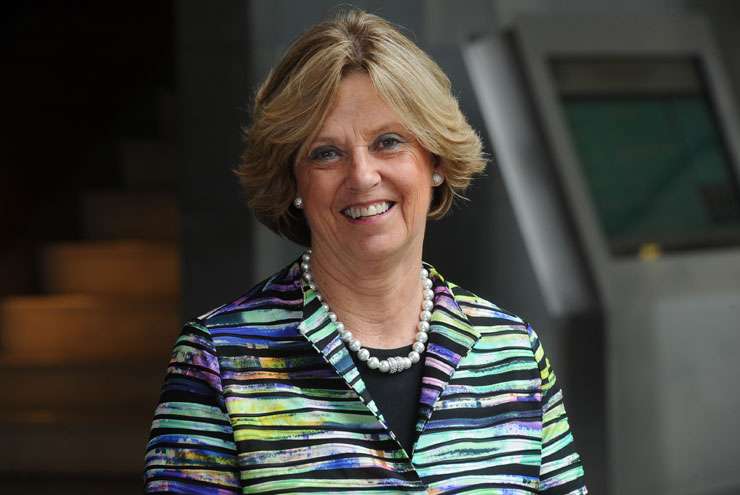Demand for properties with backyards, swimming pools, decks and media rooms has skyrocketed; as has demand for four-bedroom homes where the fourth bedroom could be used as an office.
The top end of the market has shown little signs of slowing down across the country, with the number of $1 million-plus homes sold in the first quarter of 2021 standing at 7069 — up 108% on the same period last year.
READ MORE: Find out if your suburb is rising or falling
Naturally, there was a big uplift in $1m-plus properties sold in Auckland (up 98.5%), but the largest percentage increases were in the regions. Southland saw a 400% increase (albeit on low numbers from one to five properties for more than $1m), Wellington a 310.9% uplift (from 92 to 378) and Northland a 261.5% increase (from 26 to 94).
Start your property search
Interestingly, this trend was also reflected in the top end of the market, with $3m-plus properties seeing an even bigger uplift of 123.9% (from 138 to 309).
At the luxury end of the market, the number of $5m-plus sales increased by 104.3%, from 23 to 47, with the majority in Auckland, two additional in Otago and one additional in Canterbury.
When demand outstrips supply and house prices are rising at a fast pace, we do tend to see the number of million-dollar-plus sales increasing, as more properties “tip over” into the higher price brackets. However, there is more to the uplift than just more houses moving into the next bracket.
One of the key drivers behind this uplift at the top end of the market is the fundamental shift in buyer behaviour post Covid-19. Prior to the pandemic reaching New Zealand’s shores, there was a period of a few years where people sought to reduce the amount of time spent on their property, such as mowing the lawn, for downtime elsewhere, with money spent on dining out and overseas travel.

Acting REINZ chief Wendy Alexander: "The top end of the market has shown little signs of slowing down across the country." Photo / Supplied
Covid-19 and the lockdown that followed resulted in Kiwis spending a lot more time at home. This has resulted in a big change in what Kiwis want from their homes.
Demand for properties with backyards, swimming pools, decks and media rooms has skyrocketed; as has demand for four-bedroom homes where the fourth bedroom could be used as an office.
Sales of four-bedroom homes increased by 15.1% in the 12 months ending March 2021, compared to less than 5% increases in the two years prior.
Again, at the luxury end of the market, post-Covid leisure activities are being reintroduced into the home and buyers are looking for properties that can accommodate these requirements. Properties with room and flexibility are invaluable. Buyers are increasingly seeking out properties that have room for working out, entertaining, working, educating their children at home, and outside space for activities like swimming, gardening, sports and relaxation.
Reflecting on that shift, the number of six-bedroom-plus properties sold in the 12 months to March 2021 increased by 40.1% compared to a 6.8% uplift in the prior comparative period.
With international travel all but non-existent in the last year, buyers have also looked at investing significant portions of the estimated $10 billion that would otherwise have been spent on overseas travel into property.
In some instances, this has been for renovations, in others it’s been purchasing a holiday home or, at the luxury end of the market, a second or third holiday home. This trend has been prevalent not just in New Zealand but in other parts of the world too.
Other drivers have been economic factors. The fact that we’ve had the lowest interest rates on record has meant that people are prepared to pay a little more for a house than when interest rates are high, and when they’re stepping up to the next price bracket, they might step up more than they had anticipated.
Additionally, we’ve had a 12-month period with no LVR restrictions in place, which has made it easier for buyers to borrow money and has underpinned significant confidence levels in the market, when just over 12 months ago the outlook was very uncertain, even bleak.
Looking forward, it’s hard to predict how this end of the market will perform. On one hand we’ve got government measures aimed at stabilising the market and making it more affordable for first-home buyers. This is absolutely a measure that should be looked at; house prices have risen at a faster pace than savings or wage rises and the length of time it takes to save a deposit has increased significantly.
However, on the other hand, we’re still relatively restricted in terms of international travel. New Zealand is community-transmission free at the moment and our vaccine programme is gearing up.
Time will tell what this all means for the top end.
- Wendy Alexander is acting chief executive at the Real Estate Institute of New Zealand










